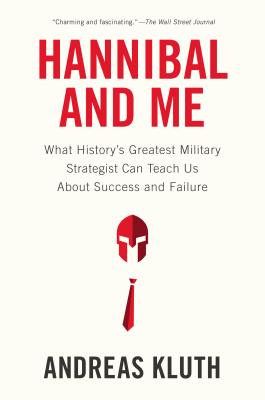 We are creatures of habit, and that is never more evident as in the advent of a new year when we swear to new habits as we discard old ones. Despite our best intentions, perhaps it is the very habit of our habits that could use a New Year’s resolve.
We are creatures of habit, and that is never more evident as in the advent of a new year when we swear to new habits as we discard old ones. Despite our best intentions, perhaps it is the very habit of our habits that could use a New Year’s resolve.
In a recent New York Times Op-Ed, Harvard economics professor Sendhil Mullainathan examined how our comfortable habits can make us adverse to trying new things: “We persist with many of them because we tend to give undue emphasis to the present. Trying something new can be painful: I might not like what I get and must forgo something I already enjoy.”
Reading is no different: we get comfy in our penchant for certain literary works OR in our certainty that we don’t enjoy others. A friend tells me about a great new sci-fi book and faster than you can say “little green men,” I reply that I don’t like sci-fi. (That is, until I recall, and sheepishly concede, how much I enjoyed “The Martian.”)
While there is value in the power of habits and solace in ritual and comfort in the familiar, they can also lure us into a complacent lair.
 “Hannibal and Me: What History’s Greatest Military Strategist Can Teach Us About Success and Failure” is more than just a military biography. Author Andreas Kluth uses historical figures (Hannibal, Truman, Jung, Cleopatra, and Einstein, to name a few) to examine divergent paths and legacies—some of transcendence and success and others of stagnation and failure. The work explores how those same lessons, and our ability to adapt to our customs, habits, and perspectives, applies to our own lives and possible legacies.
“Hannibal and Me: What History’s Greatest Military Strategist Can Teach Us About Success and Failure” is more than just a military biography. Author Andreas Kluth uses historical figures (Hannibal, Truman, Jung, Cleopatra, and Einstein, to name a few) to examine divergent paths and legacies—some of transcendence and success and others of stagnation and failure. The work explores how those same lessons, and our ability to adapt to our customs, habits, and perspectives, applies to our own lives and possible legacies.
A new year is an ideal time to stretch beyond our numerous comfort zones, perhaps even one of the coziest of all: our reading. As Mullainathan wisely noted, “Experimentation is an act of humility, an acknowledgment that there is simply no way of knowing without trying something different.”
Bring on the little green men!
“I fear the man of a single book” –Saint Thomas Aquinas